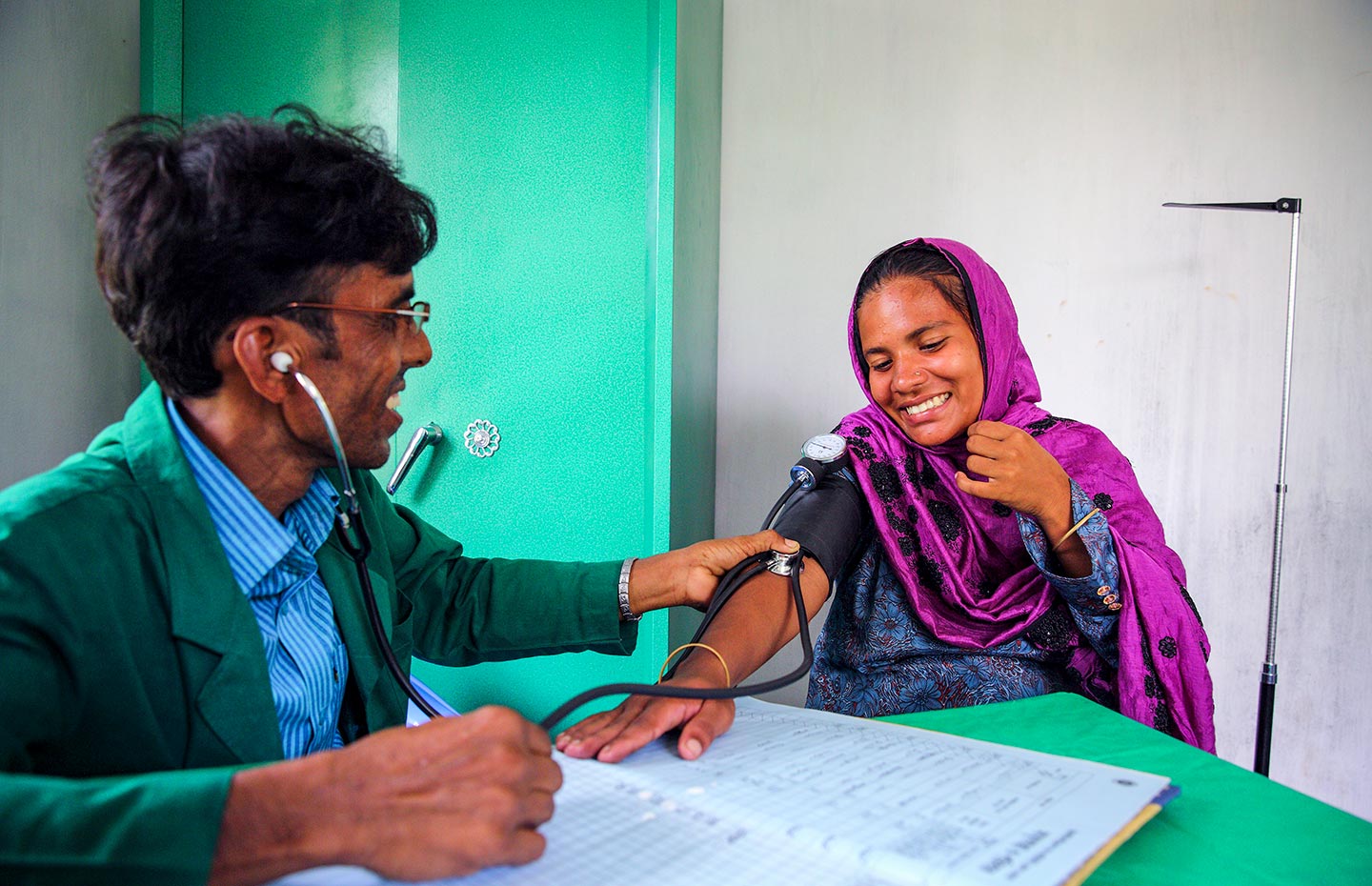Together with the eligibility and transition policy, the co-financing policy is at the heart of Gavi’s catalytic funding model. As Gavi-supported countries progress on a trajectory of increasing GNI per capita towards phasing out of Gavi support, they increasingly take on higher levels of co-financing.
WHAT IS THE PURPOSE OF GAVI'S CO-FINANCING POLICY?
The co-financing policy encourages governments in Gavi-supported countries to invest in new vaccines, enhancing country ownership of vaccine financing. It helps them plan for financially sustainable immunisation programmes in preparation for the phasing out Gavi support for these vaccines.
WHEN IS THE CO-FINANCING POLICY APPLIED AND HOW DOES IT WORK?
Since 2008, all countries applying to Gavi for new vaccine support co-finance a portion of the cost. The co-financing requirement for individual countries depends on their transition phase per the eligibility and transition policy.
In the initial self-financing phase, the government’s contribution is a flat amount: US$0.20 per dose of any Gavi-supported vaccine that is used in routine immunisation programmes. This contribution is intended primarily to reinforce country ownership and build procurement capacity, without discouraging new vaccine adoption.
When a country enters the preparatory transition phase, the government’s contribution increases by 15 percent per year. In this phase, the co-financing requirement is a percentage of the price of vaccines, and the absolute amount will thus vary from vaccine to vaccine.
When a country enters accelerated transition, the government’s share of vaccine costs increases from the level it had reached during the previous phase to 100% of the cost over a period of five years.
While co-financing is mandatory for Gavi-supported vaccines used in routine immunisation, governments are generally not required to co-finance vaccines for one-time immunisation campaigns, such as mass preventative campaigns with meningococcal A vaccine.
Beginning in 2018, co-financing will be required for measles and measles-rubella periodic follow-up campaigns: 2% of vaccine doses for low-income countries, 5% for preparatory transition (phase 1) and accelerated transition (phase 2) countries.
WHEN WAS THE CO-FINANCING POLICY APPROVED AND WHEN WILL IT BE UPDATED?
Gavi has applied a co-financing policy since 2007. The current co-financing policy was approved by the Gavi Board in June 2015 and new co-financing obligations took effect in January 2016. The policy was updated in June 2016 to include co-financing requirements for measles and measles-rubella periodic follow-up campaigns.
The co-financing policy will be reviewed and updated as needed, when requested by the Gavi Board.

